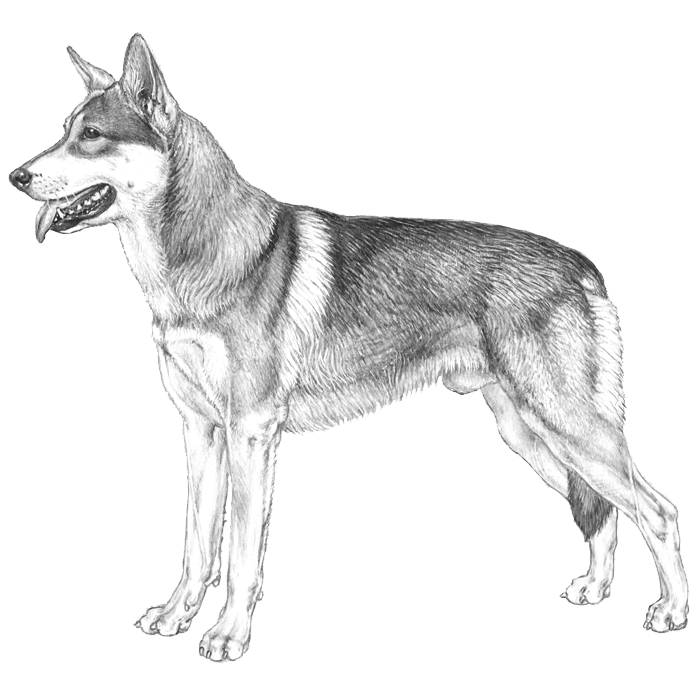Renal Cystadenocarcinoma and Nodular Dermatofibrosis
This inherited condition affects multiple organs. Dogs may develop firm skin nodules and are at risk for tumors in the kidneys and, in females, the uterus.
-
Signs and symptoms
Signs of this disease include thick skin nodules, excessive thirst and urination, uterine tumors (leiomyomas) in females, and kidney tumors (renal cystadenocarcinoma). If the cancer metastasizes to the lungs, affected dogs can have respiratory distress.
First signs usually develop around 5 years of age, with death from the disease likely around 9 years of age. -
Diagnosis
Genetic and laboratory testing are used to diagnose this condition. Abdominal ultrasound is used to visualize the uterus.
-
Treatment
There is no treatment for RCND. Certain medications, fluid therapy, and surgical management may be recommended.
-
What to do if your dog is at risk
Actions
- Talk to your vet about your dog’s RCND result so you can work together to plan ongoing care and monitoring.
- Schedule regular checkups and imaging as recommended to monitor kidney health and detect any changes early.
- Work with your vet to manage any symptoms and focus on keeping your dog comfortable through appropriate supportive care.
- Keep your dog comfortable at home with soft bedding, easy access to water, and a calm, low-stress environment.
-
Genetic Information
This mutation was first described in the German Shepherd Dog.
This mutation is inherited in an autosomal dominant manner, meaning that one or two copies of this gene will cause the disorder. There is strong evidence that two copies of the mutation is lethal in utero.
Gene names:
FLCN ‐ chr
Inheritance type:
dominant
Citations:
-
Breeds affected
This health condition affects the following breeds
Learn about your dog’s unique genetic health
Dog owners
Breed identification, health and trait insights, personalized care recommendations, and the world’s first canine relative finder—all in one leading dog DNA test.
Learn about the report for dog ownersShop the test
Breeding programs
Embark’s test for breeding programs is one comprehensive DNA test designed with your needs in mind.
Learn about the report for breedersShop the test
















